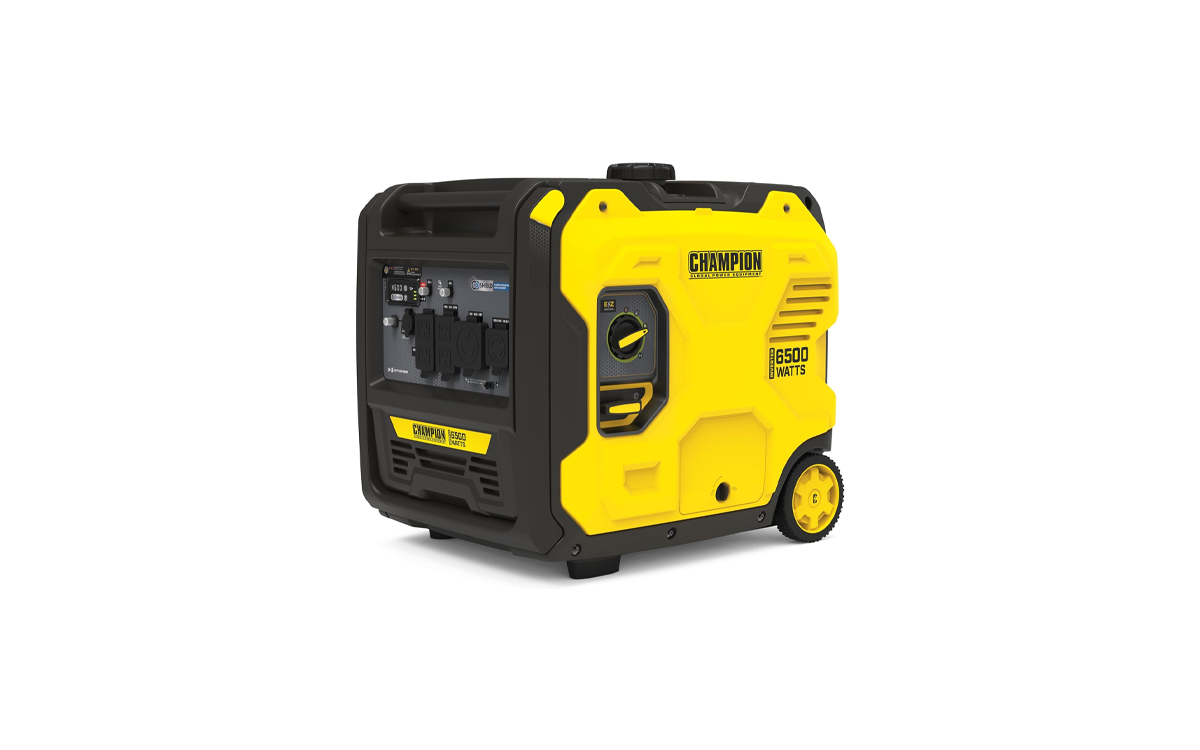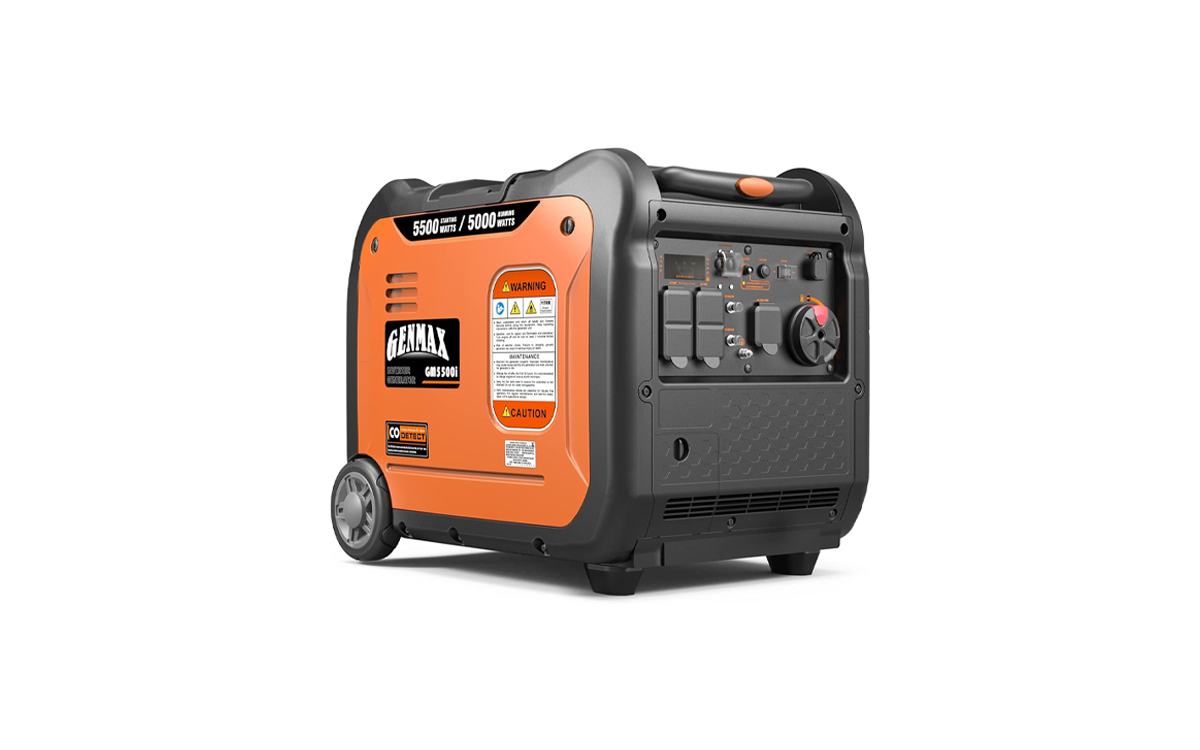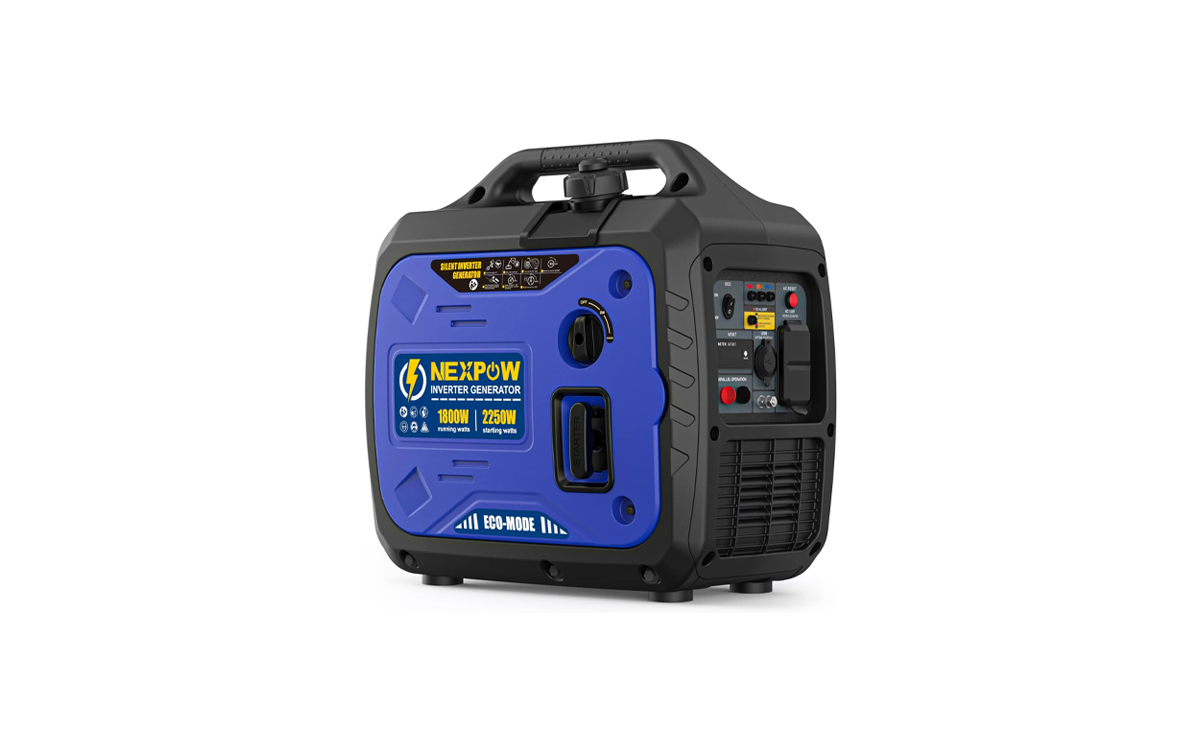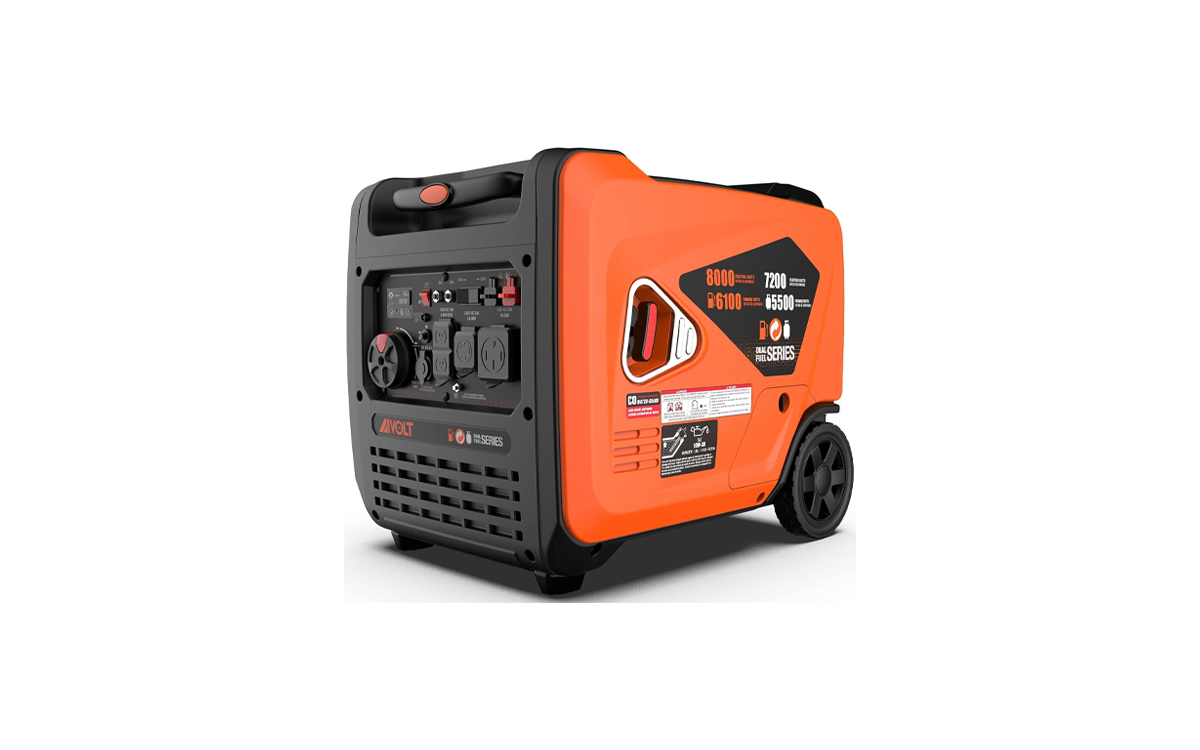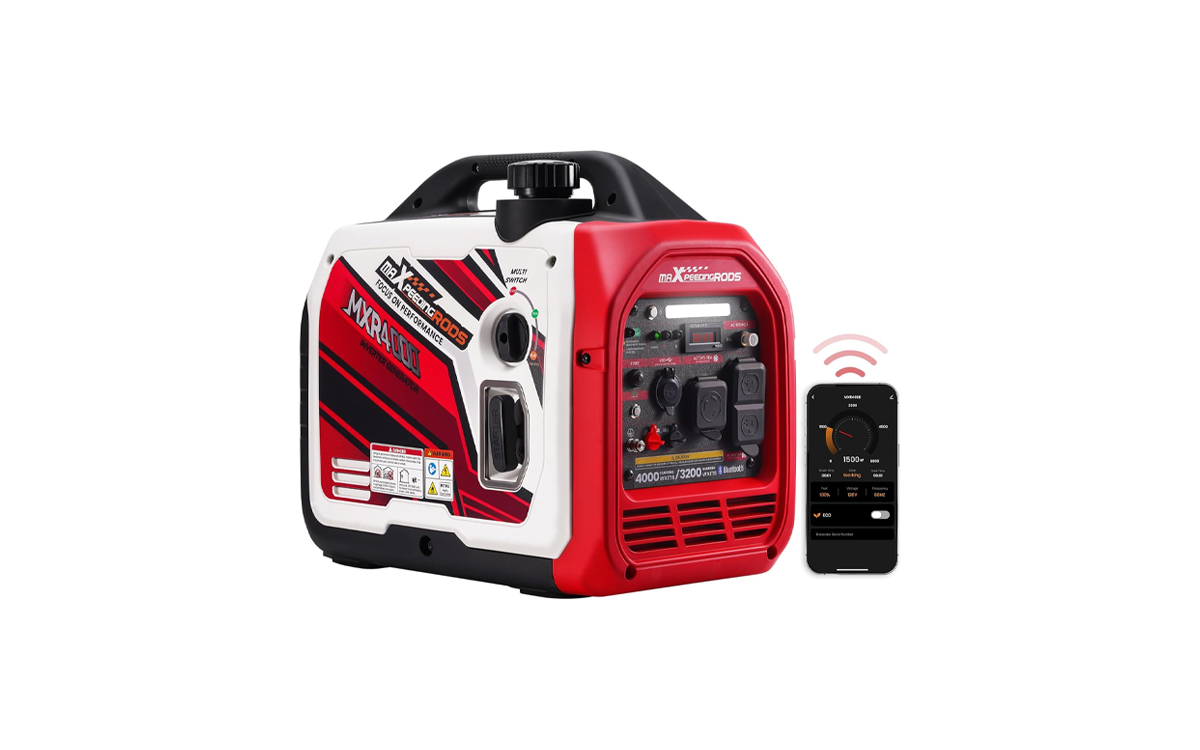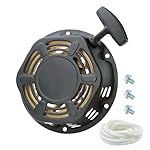Most Quiet Generator for Camping (Reviews & Guide)
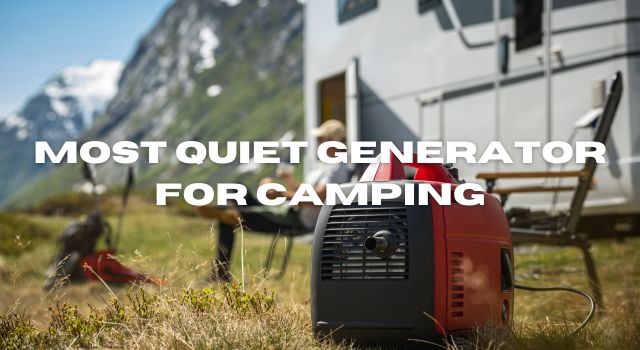
* This site contains affiliate links for which we may be compensated.
Choosing a quiet generator for camping is crucial for anyone looking to enjoy the serenity of nature without the disruptive noise often associated with portable power sources. This article provides a comprehensive overview of why noise level is a key factor when selecting a camping generator, emphasizing the need to balance power requirements with the desire to maintain a peaceful outdoor environment.
Why Noise Level Matters in Camping Generators
Impact on the Camping Experience
The serenity of a campsite is one of its biggest draws. Loud noises from generators can significantly diminish this tranquility, creating a less enjoyable experience not only for you but also for others camped nearby. The constant drone can disrupt sleep, conversation, and the enjoyment of natural sounds, which are essential aspects of the camping experience.
Respecting Nature and Fellow Campers
Choosing a quieter generator demonstrates consideration for the environment and fellow campers. It helps in maintaining the natural ambiance of the site, ensuring that wildlife remains undisturbed and that the campsite remains a peaceful haven for everyone.
Scenarios Where Quiet is Crucial
In many camping areas, particularly those in national parks or with designated quiet times, adherence to noise regulations is mandatory. A quiet generator ensures you comply with these rules, avoiding potential fines and fostering a respectful camping culture. Quiet is especially important during early morning and late evening hours when many campers appreciate peace for sleep or contemplation.
Understanding Generator Noise Levels
Measurement of Noise (Decibels)
Noise levels of generators are quantified in decibels (dB), providing a clear scale to compare the loudness of different models. Understanding this scale helps in selecting a generator that won’t be disruptive.
Comparison with Household Items
By comparing generator noise to common household sounds, it’s easier to understand what decibel ratings actually mean. For instance, while a refrigerator may hum quietly at 40 dB, a conversation at 60 dB can drown out less prominent noises, and a vacuum cleaner at 70 dB becomes distinctly loud and possibly irritating over time.
Acceptable Noise Levels for Camping
To maintain a peaceful camping environment, it’s advisable to choose generators that operate below 60 dB. Many newer models are designed to work at even lower levels, around 50 dB or less, minimizing their auditory impact and blending more seamlessly into the background sounds of nature.
Top Features to Look for in a Quiet Camping Generator
Inverter Technology: This technology not only allows for a quieter operation but also provides cleaner power suitable for sensitive electronic devices.
Sound-dampening Materials and Enclosures: Specially designed enclosures and materials can significantly lower noise output, making the generator less intrusive.
Low RPM Engines: Engines that function at lower revolutions per minute tend to be quieter, adding to the overall reduction in sound emission.
Eco-mode Settings: This feature adjusts the power output to the load demand, reducing both fuel consumption and noise levels during periods of light use.
Balancing Features: While it’s beneficial to have a quiet generator, it’s also crucial to ensure that the reduction in noise doesn’t come at the expense of power and efficiency. A well-balanced generator offers a good mix of noise control, power output, and essential features, providing reliable performance without excessive noise.
Most Quiet Generator for Camping Reviews 2025
Analysis of Top Models on the Market
Ultra-quiet Models: These generators are specifically engineered for minimal noise output, ideal for settings where even a slight hum can be a disturbance.
Lightweight and Portable Options: For campers who frequently move or hike to various campsites, lightweight and compact generators ensure easy transport without the burden of heavy equipment.
Fuel-efficient Choices: Opt for models that maximize fuel efficiency, providing longer operation times at lower costs and reduced noise levels, which is perfect for extended camping trips.
#1. Champion Power Equipment 6500-Watt Portable Inverter Generator
Noise Level: This generator operates at 69 dB, which is reasonable for its high power output but may be slightly louder compared to smaller, less powerful units.
Power Output: Offers 6500 watts of starting power and 5000 watts of running power, ideal for powering multiple camping appliances and tools.
Fuel Efficiency: Features an Economy Mode, which helps reduce fuel consumption and extends engine life.
User Reviews: Praised for its reliability and the ability to power extensive setups for prolonged periods, though some reviews mention it’s not the quietest option available.
#2. GENMAX Portable Inverter Generator (GM5500i)
Noise Level: Advertised as ultra-quiet, this model operates at around 53 dB, making it an excellent choice for noise-sensitive environments.
Power Output: Provides 5500 watts of peak power and 5000 watts of continuous power.
Fuel Efficiency: Equipped with a fuel-efficient mode that adjusts the motor speed to match the load, optimizing fuel consumption.
User Reviews: Users appreciate its quiet operation and compact design, making it easy to transport and store. Effective for medium to large camping setups.
#3. Portable Generator Ultra-Quiet
Noise Level: Boasts a low noise output of just 48 dB, which is less than the noise level of a normal conversation, making it one of the quietest options available.
Power Output: Ideal for small to medium power needs, providing 2000 watts of starting power and 1600 watts of running power.
Fuel Efficiency: Features an eco-mode that significantly reduces fuel consumption when full power isn’t required.
User Reviews: Highly rated for camping due to its ultra-quiet operation and lightweight, which makes it perfect for light power needs like charging electronic devices and small appliances.
#4. AIVOLT Portable Inverter Generator
Noise Level: This model operates at about 52 dB, providing a quiet solution suitable for both camping and residential use.
Power Output: Delivers 2300 watts peak power and 1800 watts running power, suitable for a range of outdoor and emergency applications.
Fuel Efficiency: Includes an automatic fuel shut-off feature to conserve fuel and prolong engine life.
User Reviews: Users note its ease of use and quietness, making it a favored choice for those needing a reliable power source without the disturbance.
#5. maXpeedingrods Inverter Generator with Bluetooth®
Noise Level: Operates quietly at 58 dB, offering a balance between efficiency and quietness.
Power Output: Capable of producing 3200 watts of peak power and 2800 watts of continuous power.
Fuel Efficiency: Features smart technology to adjust the motor based on load, which enhances fuel economy.
User Reviews: The Bluetooth® feature is highly rated, allowing users to monitor and control the generator remotely. Ideal for users who value tech integration in their camping gear.
Tips for Reducing Generator Noise During Camping
Proper Placement: Positioning the generator as far away as possible from the campsite or behind physical barriers such as your vehicle or a pile of rocks can greatly lessen its audibility. This arrangement utilizes physical space and barriers to buffer the noise.
Sound-dampening Accessories: Implementing devices like acoustic enclosures, soundproof boxes, or placing the generator on rubber mats can significantly isolate and reduce noise vibrations.
Eco-mode Operation: Leveraging the eco-mode feature helps in reducing the noise output by lowering the engine’s power output when full capacity isn’t necessary, conserving energy and diminishing sound.
Positioning and Wind Direction
Sound propagation can be influenced by wind direction and landscape. By understanding these elements, one can place the generator in a location where natural landforms or the direction of the wind will help dissipate the sound, minimizing the noise that reaches the campsite.
Alternatives to Traditional Generators

Solar Panels and Solar Generators
These offer a completely silent operation and are highly suitable for sunny environments. They’re eco-friendly, producing no emissions and requiring no fuel.
Pros:
• Eco-friendly: Solar panels produce energy without emitting pollutants, making them a clean power source ideal for nature settings.
• Quiet Operation: Unlike fuel-based generators, solar generators operate silently, which preserves the tranquility of camping environments.
• Low Maintenance: Solar panels have few moving parts, reducing the likelihood of breakdowns and minimizing maintenance requirements.
Cons:
• Dependent on Weather: Their effectiveness is directly tied to sunlight availability. On cloudy or rainy days, their energy output significantly decreases.
• Initial Cost: High upfront costs for purchasing and setting up solar panels can be a deterrent.
• Space Requirements: To generate substantial power, a considerable amount of surface area is needed for panel setup, which might not be feasible in all camping scenarios.
Battery-powered Power Stations
Ideal for smaller electrical needs, these stations provide silent energy storage and can be recharged via solar panels, making them a sustainable choice for light usage.
Pros:
• Portability: These stations are typically compact and easy to transport, making them perfect for various camping setups.
• Silent and Clean: They operate quietly and without emissions, which is beneficial for both the environment and maintaining the serenity of the campsite.
• Immediate Power Supply: Battery power stations provide immediate electricity without any setup delay, unlike solar power which requires sunlight.
Cons:
• Limited Energy Reserve: Once depleted, they need recharging, which can be a challenge if away from power sources and without solar panels or other charging options.
• Battery Lifespan: Frequent charging and discharging cycles can degrade the battery’s performance over time.
• Cost: High-quality models with larger power capacities can be quite expensive.
Hybrid Systems
These systems blend solar power with traditional fuel-based generators, offering a compromise between eco-friendliness and power availability. They reduce reliance on fuel and can cut down on noise levels when utilizing the solar component.
Pros:
• Versatile Energy Production: By combining solar with a fuel generator, one can ensure power availability in various weather conditions and at different times of the day.
• Efficient Power Use: Can utilize solar power during the day and switch to fuel-based generation as needed, optimizing energy use and extending the time between fuel refills.
Cons:
• Complexity and Cost: These systems are more complex to set up and typically more expensive due to the need for multiple components.
• Maintenance Requirements: The inclusion of a fuel-based generator increases maintenance needs and potential mechanical failures.
• Noise and Emissions: When the fuel generator is in operation, it will produce noise and emissions, negating some of the environmental benefits of solar power.
These alternatives offer various benefits and drawbacks that campers should consider based on their specific needs, environmental conditions, and budget. Each has its place depending on the circumstances of the camping experience.
Maintenance Tips for Keeping Your Generator Quiet
Exhaust System Maintenance: Regular cleaning of the exhaust system to prevent blockages that can increase noise and reduce efficiency.
Regular Oil Changes and Engine Checks: Ensuring the generator operates smoothly and quietly by maintaining the engine in top condition through routine oil changes and checks.
Tightening Loose Parts: Loose components can lead to increased vibration and noise. Regular inspections to tighten these parts can significantly reduce unnecessary sounds.
Conclusion
This guide underscores the importance of selecting a quiet generator for camping, providing detailed reviews, practical tips, and real camper testimonials to aid in making an informed decision. Balancing power needs with the desire for peace and quiet is essential, and with the right information, campers can enjoy the best of both worlds. Regular maintenance and consideration of alternative power sources can further enhance the camping experience, ensuring every outdoor adventure is as enjoyable and serene as possible.



